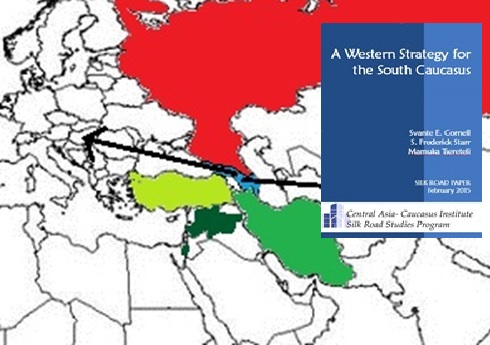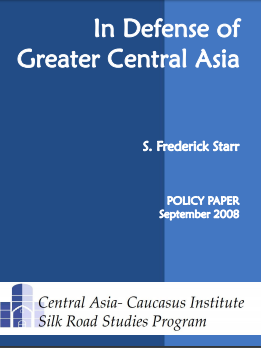In Defense of Greater Central Asia
Policy Paper
September 2008
* This Essay was first published in Politique Étrangère, no. 3, 2008, published by the French Institute of International Relations (IFRI)
In recent years the term “Greater Central Asia” has become the subject of extravagant hypothesizing. Is it the work of some international band of globe spinners, a conspiracy to be launched by Washington, or simply a new way of conceptualizing a region that has been there throughout history? Lacking clarity on its meaning, the phrase “Greater Central Asia” becomes a kind of Rorschach Test, revealing more about the fears of the observer than about the actual region.
Because I have employed the phrase in print, my name has been linked with the concept of a “Greater Central Asia.” In the essay in question I employed the term as a convenient way of denoting the larger cultural zone of which the five former Soviet republics – Kazakhstan, the Kyrgyz Republic, Tajikistan, Uzbekistan, and Turkmenistan – are a part, along with Afghanistan. It did not occur to me that this required an extensive explanation. But it clearly demands one, which this essay now attempts to provide.
Economic Aspects of the Chinese-Central Asia Rapprochment
Kazakhstan's Snap Election
Diplomatic Courier
March 25, 2015
http://www.diplomaticourier.com/channels/ballot-box/2511-kazakhstan-s-snap-election
Kazakhstan’s decision to hold early presidential elections in April, a year ahead of time, comes at a time of turmoil for the country. Generally considered a success story of the post-Soviet space, Kazakhstan faces a number of simultaneous storms, ranging from the declining oil price and fallout of sanctions on Russia to the general geopolitical instability resulting from the Russian-Ukraine war and uncertainty concerning Afghanistan’s future. Against this background, the decision to hold the election a year ahead of time raises the question whether Kazakhstan’s prized stability is in question.
A Western Strategy for the South Caucasus
 By Svante E. Cornell, S. Frederick Starr, and Mamuka Tsereteli
By Svante E. Cornell, S. Frederick Starr, and Mamuka Tsereteli
February 2015
The South Caucasus is key to Western efforts to shape intersection between Europe, Eurasia and the Middle East, and to Western commercial and strategic access to and from the heart of the Eurasian continent. Yet far from developing, Western influence in the region is at an all-time low. As Western influence has declined, and partly as a consequence of it, the region’s development has stagnated. This situation is the result of a lack of strategic vision in the West and to a series of tactical errors. This paper analyzes the shortcomigns of western policies, and offers proposals for a new Western approach to the region.
Understanding Turkey's Tilt
 Turkey has never been an easy ally for the United States.The key question for American policymakers is whether dealing with Turkey today is fundamentally different than it has been in the past. In the Journal of International Security Affairs, Svante E. Cornell argues Turkey has indeed changed in ways that cause fundamental harm to the U.S.-Turkey alliance. Click here to download.
Turkey has never been an easy ally for the United States.The key question for American policymakers is whether dealing with Turkey today is fundamentally different than it has been in the past. In the Journal of International Security Affairs, Svante E. Cornell argues Turkey has indeed changed in ways that cause fundamental harm to the U.S.-Turkey alliance. Click here to download.
(Image: Thierry Ehrmann, used under license.)


